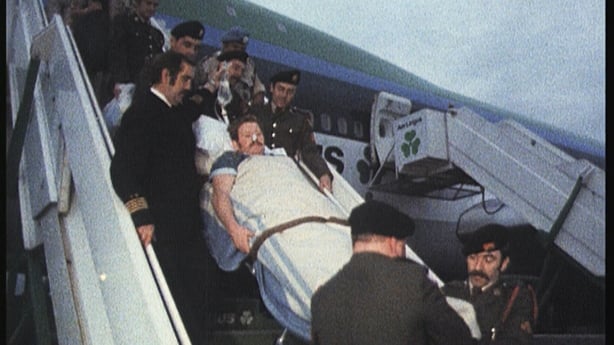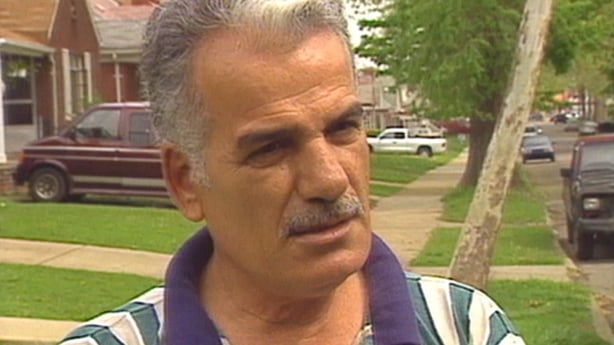The Department of Defence has said it is aware of what it calls "officially unconfirmed reports" that a man convicted of murdering two Irish soldiers and attempting to murder a third has been released from prison in Lebanon.
Mahmoud Bazzi, 79, had served over eight-and-a-half years of a 15-year sentence.
He was convicted in December 2020 of murdering Private Derek Smallhorne and Private Thomas Barrett.
They were on United Nations peacekeeping duties when they were abducted and shot dead in south Lebanon on 18 April 1980.
The sentencing judges at the military tribunal in Beirut imposed a life sentence, but reduced the term of imprisonment to 15 years.
The families of the late Privates Smallhorne and Barrett were informed on Thursday of reports from Lebanon that Bazzi was released from prison on 31 July.
The families have sought further information, as has the support group Justice for Smallhorne and Barrett.
It posted on its Facebook page today that contact has been made with the Minister for Foreign Affairs and Defence seeking information "as to the reasons for the release of Mahmoud Bazzi".
The Department of Defence told RTÉ it was "currently seeking further details on the matter".
It added: "In the meantime, the Defence Forces' Personnel Support Services are offering support to the families of Pte Thomas Barrett and Pte Derek Smallhorne, and continues to support Pte John O’Mahony, who was injured at the time."
Read more
A long road to justice for two murdered Irish soldiers
His trial began in Beirut that same year, with a principal witness in the case being Mr O'Mahony. He was shot and seriously injured by Bazzi in the same attack in 1980.
In November 2015, Mr O’Mahony gave evidence in Beirut, identifying Bazzi in the dock as the man who had shot him.
The three soldiers were on UN peacekeeping duties when their convoy was stopped by an Israeli-backed militia known as the De Facto Force, or DFF.
The three army privates were separated from other nationalities of UN personnel who had been travelling in a three-vehicle convoy.

Mr O’Mahony was shot in the stomach and the leg. His two colleagues were abducted and shot dead. Bazzi was identified immediately as the suspect in the case.
Having had interactions with him on a number of occasions in the region, Mr O’Mahony recognised him, in part because of a distinctive patch of white hair on his head.
Bazzi had disappeared from Lebanon in 1980 and his whereabouts were not known until 2000 when Prime Time reporter Fiona MacCarthy and producer Janet Traynor found him working as an ice-cream vendor in Michigan.
To this day, it is not known how he got from southern Lebanon to the US.
At that time, and speaking through an Arabic translator, Bazzi denied being the person who had fired the fatal shots.

He continued to deny the crimes during his trial, which began in Beirut just months after he was deported from the US.
When Bazzi was found guilty of the murders of Privates Smallhorne and Barrett, it is possible his life sentence was reduced to 15 years because of his age.
Privates Smallhorne and Barrett were both married with three children and for more than 40 years, their families have campaigned for justice.
Forty eight members of the Irish Defence Forces have died in Lebanon.







